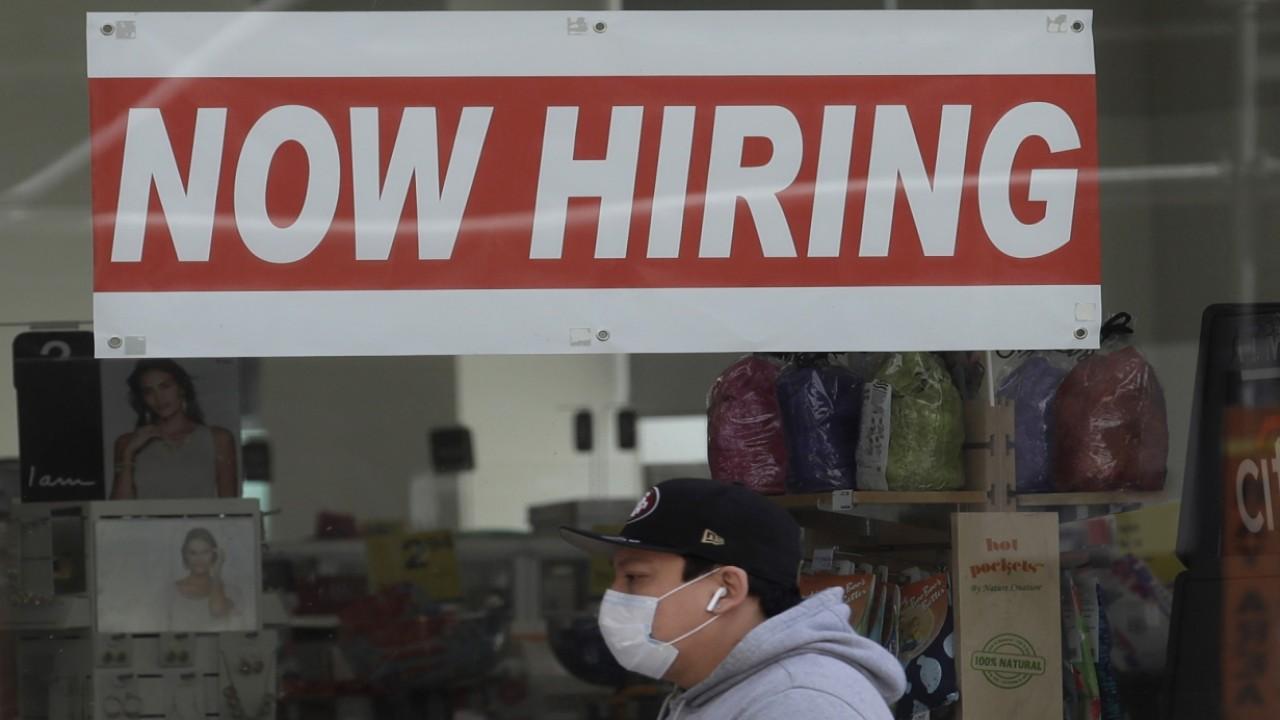US job growth slows in November as coronavirus surge threatens economic recovery
Economists expected employers to have added 469K jobs in November
The U.S. economy added just 245,000 jobs in November, sharply missing expectations and pointing to a slowdown in the labor market's recovery from the coronavirus pandemic as a surge of new infections triggered a fresh wave of shutdowns by state and local governments.
The Labor Department's monthly payroll report, released Friday, also showed the unemployment rate fell to 6.7% from 6.9%. Economists surveyed by Refinitiv expected the report to show that unemployment dropped to 6.8% and the economy added 469,000 jobs.
The figures come amid a wave of coronavirus cases and the deadliest three-day stretch since the pandemic began earlier this year. More than 100,000 people are hospitalized in the U.S. and more than 210,000 new cases were reported on Thursday alone, according to data published by Johns Hopkins University.
One stark forecast by the Centers for Disease Control and Prevention shows that as many as 19,500 people could die from COVID-19 during the week of Christmas.
12 MILLION AMERICANS FACE LOSS OF UNEMPLOYMENT BENEFITS DAY AFTER CHRISTMAS
"This is a disappointing report, and one that shows the third wave of the pandemic is having a bigger effect on hiring than had been thought," said Brad McMillan, chief investment officer for Commmonwealth Financial Network. "With the significant drop in private job creation, prospects for a continued strong recovery in consumer spending may be at risk. This is a wake-up call for Congress."
U.S. employers made 610,000 new hires in October, revised data shows, leaving November as the fifth consecutive month that job growth has cooled since the economy added a combined 7.5 million workers in May and June.
In total, the U.S. has recovered roughly half of the 22 million jobs lost during the first two months of the pandemic. There are still about 9.8 million more Americans out of work than there were in February before the crisis began.
At the current pace, the U.S. will not return to the pre-crisis level of employment until 2024, according to Glassdoor economist Daniel Zhao.
“As the pandemic surges, labor market recovery is clearly decelerating and cracks are beginning to show," he said, addding: "Today's report is a firm reminder that we're not out of the woods yet. Even with a vaccine on the horizon, many are bracing for a long winter ahead."
Notable job gains took place in the transportation and warehousing industry, which added 145,000 new employees last month, boosted by an increase in couriers and messengers, as well as warehousing and storage. Professional and business services rose by 60,000, with roughly half of the gains occurring in temporary help services, while health care added 46,000 jobs.
But the leisure and hospitality industry, one of the hardest hit by the pandemic, added just 31,000 jobs last month, while retail lost 35,000 jobs -- a potential sign of trouble ahead of the pivotal holiday shopping season.
PELOSI, SCHUMER URGE MCCONNELL TO RESTART CORONAVIRUS RELIEF TALKS
After months of deadlock, Congress is making a final push this week to strike a coronavirus relief deal before the end of the year. Democratic officials have thrown their support behind a $908 billion proposal unveiled earlier this week by a group of bipartisan senators and endorsed by the House Problem Solvers Caucus, a 50-member group evenly split between Republicans and Democrats.
With just five legislative days left on their calendar, it's unclear whether lawmakers will be able to overcome key sticking points that have confounded them since the summer.
During congressional testimony this week, Federal Reserve Chairman Jerome Powell reiterated his plea to lawmakers to pass another stimulus package to help the economy get through the winter.
“It would be very helpful and very important that there be additional fiscal support for the economy, really to get us through the winter,” Powell said. “I think we made a lot of progress faster than we expected, and now we have a big spike in COVID cases, and it may weigh on economic activity. People may pull back from activities they were being involved in or not engage in new activities.”




















